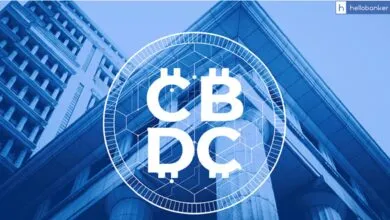Big Achievement for NSE! NSE crossed 22 crore investor accounts milestone

In April 2025, the National Stock Exchange (NSE) of India reached an important milestone. The number of investor accounts—also called Unique Client Codes (UCCs)—crossed 22 crore (220 million). This is a huge jump, especially because it took only six months to add the last 2 crore accounts after crossing the 20 crore (200 million) mark in October 2024. However, it’s important to note that one investor can have accounts with multiple brokers, which means they may have more than one UCC.
As of March 31, 2025, the number of unique registered investors (individual people, not just accounts) was 11.3 crore (113 million). This number had crossed the 11 crore mark just a few months earlier, on January 20, 2025.
Looking at the state-wise distribution, Maharashtra has the highest number of investor accounts at 3.8 crore, followed by Uttar Pradesh with 2.4 crore, and Gujarat with 1.9 crore. States like Rajasthan and West Bengal each have around 1.3 crore accounts. These top five states alone contribute to almost 49% of all investor accounts in India. The top 10 states together account for nearly 75% of the total.
This growth in investor participation is also backed by strong returns in the stock market. Over the last five years, the Nifty 50 Index—which tracks 50 major companies—has given an impressive annual return of 22%, while the Nifty 500 Index, which includes more companies, delivered an even higher return of 25% annually. These returns show that the Indian stock market has created significant wealth for its investors.
The NSE has also grown stronger in terms of investor protection. Its Investor Protection Fund (IPF) has increased by more than 23% in the past year, reaching ₹2,459 crore as of March 31, 2025. This fund is used to protect the interests of retail investors in case of defaults by brokers or other issues.
Commenting on the growth, Sriram Krishnan, the Chief Business Development Officer at NSE, said that the rapid addition of over 2 crore new accounts in just six months shows strong investor trust in India’s economic growth. He pointed out that this rise has been supported by digital advancements and the growing use of mobile trading apps, which have made investing easier and more accessible—even in smaller cities (tier 2, 3, and 4 cities).
He also credited financial literacy programs and easier KYC (Know Your Customer) procedures for encouraging more people to invest. As more people invest not just in stocks, but also in ETFs, REITs, InvITs, and bonds, the financial system is becoming more mature and inclusive, with technology playing a major role in making investing possible for everyone.
The National Stock Exchange of India (NSE) is one of the most important institutions in the Indian financial market. It started operations in 1994 and was the first exchange in India to use electronic screen-based trading, replacing the old system of face-to-face floor trading. Since 1995, it has remained the largest stock exchange in India based on total and average daily turnover (the amount of trade happening every day), as per data from SEBI (Securities and Exchange Board of India).
NSE runs a complete system that includes stock listings, trading, clearing and settlement of trades, creation of stock indices, providing market data, offering financial education, and ensuring that all market participants follow rules. It is also known for its strong focus on technology, making sure its systems are fast, secure, and reliable. Globally, NSE is ranked as the largest derivatives exchange in terms of trading volume (number of contracts) in 2024, according to the Futures Industry Association (FIA). It is also ranked 2nd in the world for the equity segment by number of trades in 2024, as per the World Federation of Exchanges (WFE).
